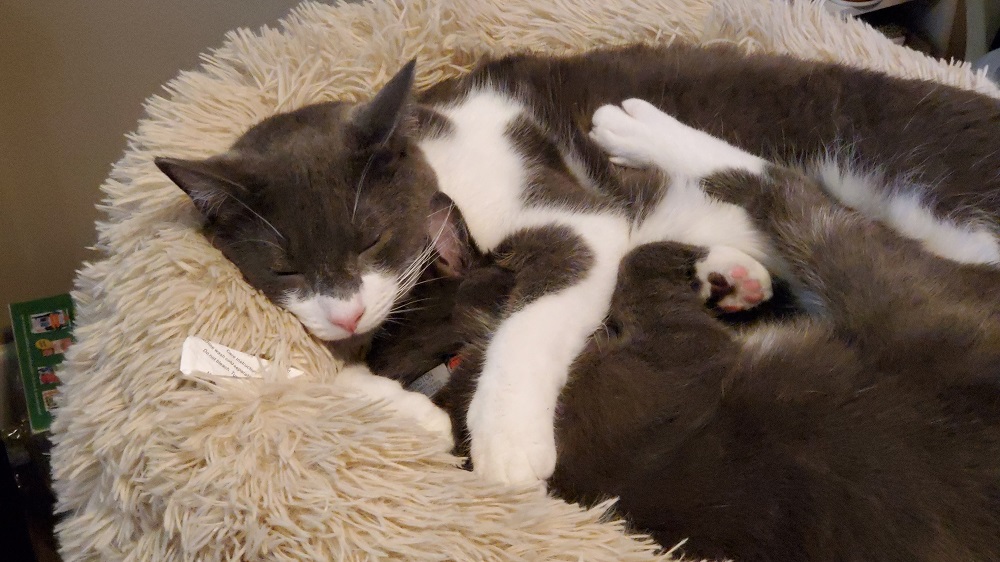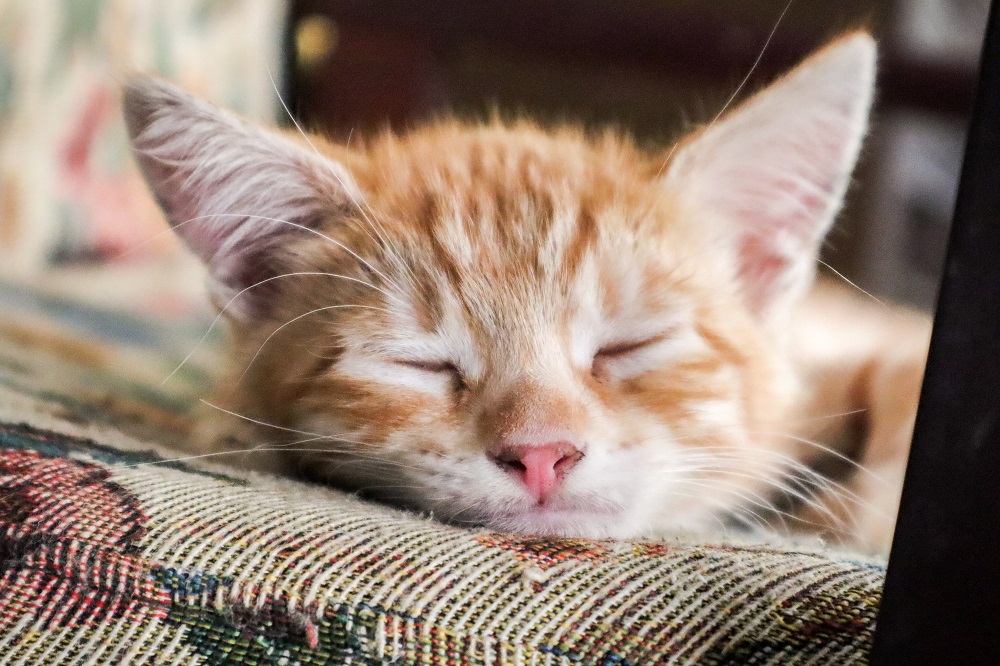If your cat seems to spend most of the day in a deep snooze, you are not imagining things. Cats are expert sleepers. In fact, they sleep more than almost any other mammal. But why do they sleep so much, and should you ever be concerned about it?
Whether your cat is curled up in the sun for hours or your kitten seems to nap between every burst of energy, sleep plays an important role in their overall health and well-being. Here is what every cat owner should know about feline sleep habits and why catching so many Zs is completely normal for your furry friend.
How Much Do Cats Sleep?
On average, adult cats sleep between 12 to 16 hours a day. Some cats sleep even longer, especially as they age. Kittens, in particular, can sleep up to 20 hours per day as they grow and develop.
This might sound like a lot, but it is actually part of a healthy and natural rhythm. Cats are wired to rest often and conserve energy between short bursts of activity. Their sleep cycle is different from ours and is shaped by millions of years of evolution.
Cats Sleep So Much
Cats sleep for many reasons, most of which are rooted in their biology and instincts. Here are the key factors behind your cat’s love of napping.
1. Energy Conservation
Cats are predators by nature. In the wild, hunting requires short bursts of intense energy followed by long periods of rest. Even though your house cat does not need to stalk prey, their instincts are the same. Sleeping allows them to recharge so they are ready for play, pouncing, or running when the moment strikes.
This is especially noticeable in kittens, who go from full-speed zoomies to deep sleep in a matter of minutes. Their growing bodies require even more rest to support rapid development.
2. Crepuscular Activity Patterns
Cats are crepuscular animals. That means they are most active during dawn and dusk. These hours are when their wild ancestors would naturally hunt, since many prey animals are also active during these times.
Because of this, your cat may be full of energy in the early morning and again in the evening but rest or sleep most of the day and night. Their sleep-wake cycle is perfectly normal, even if it does not match your own.
3. Brain Development and Memory
Sleep is important for brain health, and that includes memory and learning. For kittens, sleep plays a vital role in processing new information. Every time your kitten plays, explores, or interacts with their environment, their brain works hard to store those experiences.
Deep sleep allows your kitten’s brain to develop properly and helps them learn faster. This is one reason kittens sleep so much more than adult cats.
4. Boredom and Low Stimulation
Sometimes, cats sleep simply because there is not much else to do. If your cat lives in a quiet home with limited stimulation, they may nap out of boredom.
While this is not necessarily harmful, it is a sign that your cat may benefit from more enrichment. Toys, puzzle feeders, climbing shelves, and regular playtime can encourage more mental and physical activity during their awake periods.

5. Age and Health
Your cat’s age plays a big role in how much sleep they need. Kittens and senior cats typically sleep more than young adults.
However, a sudden increase in sleep or lethargy can sometimes be a sign of an underlying health issue. If your normally active cat is sleeping much more than usual and seems withdrawn, uninterested in food, or behaving unusually, it is worth a visit to the vet.
Is All That Sleep Healthy?
In most cases, yes. Cats are naturally long sleepers, and most of their rest periods are harmless. As long as your cat is active and alert when awake, eating regularly, and using the litter box normally, there is no need to worry.
But if your cat shows signs of illness such as changes in appetite, frequent hiding, labored breathing, or a noticeable drop in energy when awake, more sleep could be a symptom of something else.
Keep track of your cat’s behavior, and if anything feels off, do not hesitate to reach out to your vet.
How to Support Healthy Sleep Habits
Even though cats sleep a lot, they still need stimulation and structure during their waking hours. Here are some ways to support healthy sleep and activity patterns:
- Give your cat dedicated play sessions each day using interactive toys
- Offer a variety of toys and rotate them to keep things interesting
- Set up a cozy, quiet spot for uninterrupted sleep, away from loud noises or heavy foot traffic
- Maintain a consistent feeding routine to match their natural rhythms
- Use window perches, cat trees, or shelves to provide safe spots for daytime naps
A balanced routine of rest and activity helps keep your cat mentally sharp and physically healthy.
Final Thoughts: Sleeping Is a Natural Superpower
Cats are built to sleep, and they are very good at it. Whether it is part of their natural predator instincts or just a way to recharge for their next play session, sleep is essential to your cat’s health and happiness.
As a cat parent, you can support their needs by providing a calm, enriched environment that allows them to rest deeply and play actively. So let your cat nap in that sunbeam or curl up in their favorite corner. They are not being lazy. They are just being a cat.
Sources:
– Why Do Cats Sleep So Much? https://www.petmd.com/cat/behavior/why-do-cats-sleep-so-much
– Understanding Cat Sleep Patterns https://www.britannica.com/story/why-do-cats-sleep-so-much
– Sleep and Brain Development in Kittens https://www.humanesociety.org/resources/kitten-development-timeline
– How Much Sleep Is Normal for a Cat? https://www.icatcare.org/advice/how-much-sleep-is-normal-for-cats
– Feline Behavior and Sleep Needs https://vcahospitals.com/know-your-pet/feline-behavior-guidelines
Recent Posts
Your Cat Might Be a Furry Little Healer… or at Least a Fuzzy Alarm System If you’ve ever had your cat suddenly become extra clingy when you’re under the weather, you’re not alone. From...
Cats are experts at hiding things, socks under furniture, their disdain for your playlist, and, unfortunately, symptoms of illness. In the wild, showing weakness could make them a target, so even...


